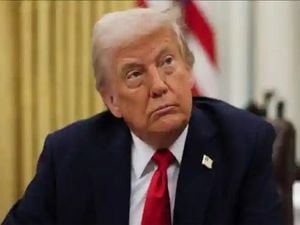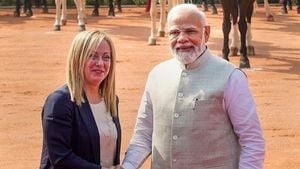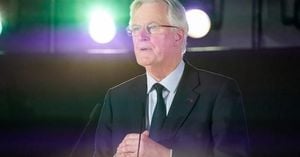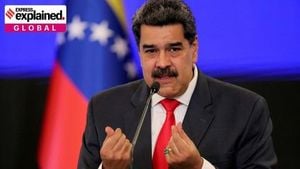As the UK Covid-19 Inquiry resumes its work, the spotlight has shifted to the pandemic’s profound impact on children and young people—a subject that has stirred deep emotions and urgent debate across the country. On September 29, 2025, the inquiry opened its latest module, delving into the consequences of school closures, government decisions on vulnerable children, and the much-criticized handling of free school meals. The four-week series of hearings promises to unravel the extent to which children’s welfare was prioritized—or overlooked—amid the chaos of a global health crisis.
The inquiry’s opening day was marked by sobering revelations. According to Press Association coverage, counsel Clair Dobbin KC painted a stark picture: “The reality is that there were children who suffered grievous harm at the hands of their carers during the pandemic. The carers of those children bear responsibility for the violence and neglect inflicted on children, and these children stand as the starkest examples of what adults are capable of doing to children behind closed doors.” The closure of schools, it turns out, did not just disrupt learning—it also dismantled vital safety nets for the most vulnerable.
Baroness Heather Hallett, chairwoman of the inquiry, did not mince words about the gravity of the situation. She described the pandemic’s impact on children and young people as “severe and, for many, long-lasting,” emphasizing that the loss of educational opportunities, social interaction, and protection from abuse has left scars that may endure for years. Evidence presented revealed that referrals to social services dropped during school closures, a worrying trend that left some children without the oversight and intervention they desperately needed.
One tragic example cited was the case of 16-year-old Kaylea Titford, who died in October 2020 after being left in squalid conditions by her parents. A safeguarding report later highlighted the role of reduced multi-agency coordination during the pandemic in exacerbating Kaylea’s vulnerabilities and cutting her off from support. This heartbreaking story underscores the importance of schools as the “constant eyes” on children—a phrase Dobbin used to describe their role as early warning systems for safeguarding.
But the dangers weren’t limited to what happened behind closed doors. The National Crime Agency (NCA) reported a surge in online threats to children during school closures and furlough. As Dobbin explained, “school closures and furlough caused more children and child sexual abuse offenders to be online,” leading to increased exposure to violent pornography and a rise in sexual abuse between peers. The NCA concluded that the Covid-19 restrictions “triggered both temporary and accelerated ongoing changes to child sexual abuse offending.”
For many young people, the digital world became both a refuge and a source of risk. One child told the inquiry they spent up to 19 hours a day playing Roblox; another admitted to spending months immersed in the game Animal Crossing. Remote learning, intended as a lifeline, often fell short of its promise. As one young person put it, “People would answer the remote lesson call in bed, people would be in science third lesson, and would literally have the camera off and would be posting on their Instagram stories or their Snapchat stories, literally them watching The Only Way Is Essex or something like that.” While not every child’s experience was so extreme, these accounts highlight the challenges of keeping students engaged—and safe—when classrooms are virtual.
The inquiry will hear from several key figures in the coming weeks, including former prime minister Boris Johnson, England’s chief medical officer Professor Sir Chris Whitty, and former education secretary Sir Gavin Williamson. The Department for Education, according to Dobbin, did not begin planning for school closures until after March 16, 2020—a “cause for alarm” given the seismic nature of the decision. Williamson himself described a “discombobulating 24-hour sea change” from keeping schools open on March 16 to announcing their closure just two days later. The fact that there is dispute between Williamson and Johnson over whether any planning existed at all is, Dobbin noted, “significant.”
Yet the inquiry is not just about what went wrong—it is also about what can be learned. Steve Broach KC, representing organizations like Save the Children and the Child Poverty Action Group, argued that “the rights and interests of children and young people were routinely overlooked or deprioritised” during the pandemic, and “actively undermined at times when statutory entitlements were taken away or diluted.” He urged the government to acknowledge children’s sacrifices and apologize for the mistakes made and the negative impacts suffered.
Another flashpoint under scrutiny is the government’s handling of free school meals. As ITV News reported, the inquiry will examine the so-called “blunder” around Marcus Rashford’s campaign to provide free meals to vulnerable youngsters during school holidays. Lee Cain, former No 10 director of communications, called it a “huge blunder,” lamenting the lack of diversity among policymakers and the initial reluctance to extend food vouchers. Rashford’s activism forced a government U-turn, earning him an MBE and the gratitude of families across England. He dedicated the honor to his mother and pledged to continue fighting for disadvantaged children.
Sir Gavin Williamson, who faced repeated calls to resign over his handling of school disruptions and the grading fiasco for GCSE and A-level students, was eventually sacked in September 2021. Despite the criticism, Williamson insisted he was “proud” of his post-16 education reforms, even as he acknowledged the “challenges” of the pandemic.
Former prime minister Boris Johnson, for his part, told the inquiry he “hated” imposing restrictions on schools but defended the decision not to reopen them in summer 2020, citing the risks of virus transmission. “I listened respectfully to my many colleagues, including Williamson, who wanted to keep schools open, but doing so wasn’t a runner,” he said, adding that reopening “would not have been practically very easy to do.”
Baroness Anne Longfield, children’s commissioner for England until February 2021, is among those scheduled to give evidence. She has previously described the pandemic as a “disaster” for many disadvantaged and already vulnerable children, criticizing what she termed an “indecisive” and sometimes “indifferent” government approach.
Education unions are also weighing in, with James Bowen of the NAHT describing a “breaking point” in the relationship between the profession and government. Matt Wrack of NASUWT said mistakes “often made an extremely difficult situation more difficult than it needed to be.” Pepe Di’Iasio, of the Association of School and College Leaders, emphasized that education providers felt “poorly supported by the government during the Covid crisis, and were bombarded with huge tracts of muddled guidance.” He stressed the need for “a particular emphasis on ensuring equity in future contingency planning” so that disadvantaged students are not left further behind.
As the inquiry unfolds, the voices of children—those who endured loss, fear, and confusion—are finally being heard. Their stories, echoed by teachers, parents, and advocates, serve as a reminder that the decisions made in the halls of power ripple outwards, shaping lives in ways that may not be fully understood for years to come.
The UK Covid-19 Inquiry’s focus on children is a chance for reckoning, reflection, and—ideally—reform. For those who suffered, and for those who spoke up, the hope is that this chapter will not just record mistakes, but inspire lasting change.




